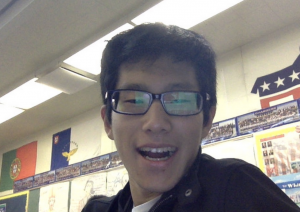User:Jamesboi
Soul Searching
Prior to this assignment, I had never thought about the types of things that would appear when my name was searched across the internet. I can never once think of a single time before this class I have ever thought about it. For that reason, when I was presented the thought of what would appear when my name was searched I was intrigued to see what would come up. I did a quick Google search and the first few results that popped up did not appear to be myself, the first two were of a person named James Boisvert but it was definitely not me. The imposter was a division three ice hockey player for a small State College. I skimmed the rest of the first page until I found something that could’ve possibly been myself, my Linkedin profile. This past Fall I did a large amount of updating to my Linkedin profile in my search for a SWE internship.
In hindsight, I think part of the reason that I had never cared much about searching myself was because i’m not very active on the web or any social media outlets. So I had never really thought much about my words being on the internet because I very seldom write things on social media outlets or the open web. After my first search, it was interesting to see that my Linkedin profile quickly appeared, but that wasn’t too surprising since I’ve made a fair amount of connections within the past 6 months or so, which possibly could have resulted in more clicks on my profile, which could have increased where my profile stood in the search algorithm that Google uses.
Google's thoughts about Me
The initial Linkedin result wasn’t too surprising, after a brief break, I started to dig deeper in the page numbers of the search. I finished my first round of searching after 10 pages. After seeing my Linkedin profile appear, I really didn’t expect much else to appear. The first few pages were composed mostly of social media usernames of other people named James Boisvert, another common search result was of individuals who had the same name as me and their athletic statistics from their High Schools or other sports teams. Every few pages I would stumble upon a search result that possibly could have been me. Interestingly enough, it didn’t take long for me to make a connection that I hadn’t really thought of before. The fact that a large amount of public data relating to me, if not the majority, comes from sources that are not put out by me. And funny enough, sources, some of which, don’t look the most secure. By that I quite literally mean they look vulnerable to basic hacks. The general trend of information about myself that I saw was from past sports teams that I have been on and organizations that I have been a part of. Some information seemed rather harmless, but in some instances, I saw my name listed with subsequent information.
Floridi and Modern Privacy
I felt a sense of awkwardness knowing that there were pieces of data pertaining to me that were so public. The past week’s discussion touched on the topic of privacy. When the topic initially arose in discussion we spoke to people around us about what privacy meant to us. I wrote down a statement that I felt my right to privacy was my right to let others know information about me. An analogy that I wrote down was “my right to keep a secret a secret”. After discussing with others, we saw Floridi’s quote from one of the readings. He had two quotes but the second one was particularly striking. It read “Your right to be left alone is also your right to be allowed to experiment with your own life, to start again , without having records that modify your personal identity forever, taking away from you the power to form and mold who you are and can be.” My subsequent reaction was that I could see where Floridi was coming from, but the statement seemed a bit overkill. I felt that the right to privacy was reducible to a lot simpler terms. I didn’t really think that my overarching life pertained too much to my privacy and what I value and want to keep private.
After extensively searching myself and seeing how much personal data was available from websites and sources that I didn’t know were publicizing my data at all, Floridi’s quote began to make complete sense. My previous take on privacy did have sensable logic behind it, but I was thinking in the scope of my personal interactions in my day to day life, and in that sense, I viewed the things that I valued being kept private like tangible objects in my own figurative apartment. Things that I value being kept private exist in that apartment and shouldn’t be let out without me knowing. Under my initial definition of privacy, this type of thinking would have applied. But with the web and general software/technology being as developed as it is, private information can’t be viewed as individual tangible objects inside an apartment, but rather, the fingerprints that you leave around everyday. Keeping track of certain objects isn’t difficult, keeping track of all the fingerprints that you’ve left behind on the other hand is infinitely more difficult. Floridi’s definition of privacy was much more of encompassing of modern privacy, understanding that in a world where people interact with software platforms as much as they do, an individual’s right to privacy doesn’t just fall on the shoulders of the individual themself because it’s nearly impossible to live a life without leaving digital fingerprints at some points along the way. And as a result, A person’s right to privacy should apply beyond themself, additionally, it should apply to any source that knowingly withholds data about them, because if that data is made public unknowingly, it has the potential to cause harm and destroy lives in the worst case.
Conclusion
When I initially began searching and researching for this assignment, I was interested to see what would pop up but I didn’t really consider how doing this would help me grasp the overarching concept of why ethics regarding personal privacy are so important going forwards. As the world becomes increasingly more digitized the total amount of personal data is only going to skyrocket. Going forward, it is paramount for ethics and privacy to be discussed when dealing with public data. Because if not, this leaves room for all sorts of chaos with regards to privacy over the web.
[SpringerLink, Springer Netherlands, 19 June 2008, link.springer.com/article/10.1007/s10676-008-9164-8. Hongladarom, Soraj. “Floridi and Spinoza on Global Information Ethics.”]

